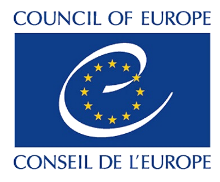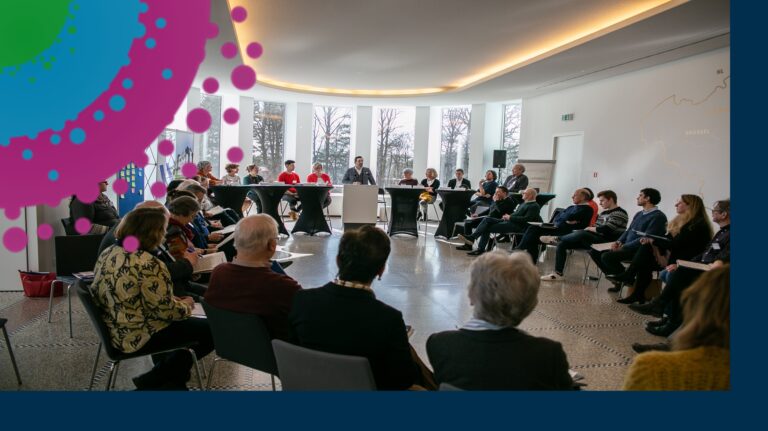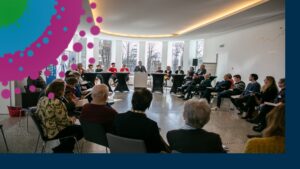Current status
Submitted
Discover more
After a contribution is submitted to BePART Forum, the initiative is marked as “Submitted”; as other partners involved in the initiative submit information from their side, the initiative is marked as “Under review” and goes through the validation process; twice a year, initiatives are validated by the BePART Working Group at the Council of Europe. Successful initiatives are marked as “Validated”. Do you want to learn more – click here
Contributor(s)
First contributor: Parlament der Deutschsprachigen Gemeinschaft Belgiens
Summary
In February 2019, the Parliament of the German-speaking Community of Belgium will establish a permanent citizens’ dialogue. By involving citizens in this project, they will gain a better insight into the work of politicians. In this way, the Parliament hopes to help legitimise political decisions and strengthen democratic institutions.
Administration level
Regional (Communauté germanophone de Belgique)
Year of implementation
2019
Policy area(s)
- General Affair
- (Local) Development and Planning
- Education, culture and sport
- Youth
- Employment
- Environment
- Public finance
- Public health
- Local government
- Housing
- Tourism
- External relations
Further details
/
Sorry, no records were found. Please adjust your search criteria and try again.
Sorry, unable to load the Maps API.
Dialogue citoyen Civil society organisation /Contact info
Tipology of involvement in the initiative
Parlement de la Communauté Germanophone de Belgique Public Authority /Contact info
Tipology of involvement in the initiative
Level of participation
- Information
- Consultation
- Dialogue
Discover more
By level of participation we refer to the type of involvement in the decision-making process. The levels are identified by the intensity of participation: going from “information” to “consultation” to ” dialogue” to “partnership”. Do you want to learn more – click here
Developed practice(s)
The method used is deliberation: the citizens taking part in the citizens’ dialogue organise a public call for proposals for topics for discussion (consultation). Once a topic has been chosen, the participants inform themselves about the subject under discussion, in particular by hearing from experts and the people concerned (information), exchange their opinions (dialogue) and then agree on a joint text, namely recommendations addressed to the members of parliament and the government of the German-speaking Community (consultation). The recommendations are then presented, discussed and commented on at two public meetings of the parliamentary committees concerned. At the end of this dialogue, the members of the parliamentary committee present a note describing how the recommendations will be implemented (dialogue). With regard to the implementation of recommendations, parliamentarians and the government are obliged to give reasons if they decide not to implement a recommendation. The Citizens’ Council monitors the implementation of the recommendations.
Step(s) of the political decision-making process at which the practice was implemented
- Ideas for policy input/incentives
- Agenda Policy definition
- Drafting the policy
- Policy decision-making
- Implementing the policy
- Monitoring policy implementation
- Reformulating the policy
Discover more
There are six different steps of the political decision-making process: agenda setting, drafting of policy, decision-making, implementation of policy, monitoring and reformulation of policy. Each step offer opportunities for CSOs and public authorities to interact. Do you want to learn more – click here
How the initiative was implemented
Situation
Motivation: For several years now, the loss of confidence in representative democracy and the growing gap between elected representatives and voters have been recurring themes in public debate. Permanent Citizens’ Dialogue in the German-speaking Community aims to meet these challenges. It helps to institutionalise citizen participation and strengthen democratic institutions at the same time. By taking part in the Citizens’ Assemblies, citizens will gain a better insight into the work of politicians: they will better understand what it means to be fully informed, exchange arguments and finally agree on a text. On the other hand, the Parliament of the German-speaking Community of Belgium hopes to promote the legitimacy of political decisions: citizen dialogue makes it possible to better identify the wishes of the population and to guide political decisions on this basis.
Background: To put this idea into practice, in autumn 2017 Parliament launched a pilot citizen deliberation project by organising an initial Citizen Dialogue on the subject of “childcare”. Encouraged by the positive feedback, Parliament then developed the idea of institutionalising citizen participation in the German-speaking Community. In spring 2018, Parliament contacted the G1000 organisation, which specialises in deliberative processes, to discuss the various possibilities. In summer 2018, at the invitation of “G1000” and the “Foundation for Future Generations”, Belgian and international experts met to develop a model for permanent citizen participation in the German-speaking Community. Based on this model, Parliament drew up a proposal for a decree and at its plenary session on 25 February 2019, it adopted the decree establishing a permanent dialogue in the German-speaking Community. Implementation of the Citizen Dialogue began in September 2019 with the establishment of the first Citizen Council. The Citizens’ Assembly met for the first time in March 2020.
Activities performed
In September 2019, the first Citizens’ Council was set up. This body has, to date, organised 3 assemblies around the subjects of healthcare, inclusive education and housing.
Tools and mechanisms applied
Citizen Dialogue is based on three principles: the stability of the dialogue, the representativeness of the Assembly and the quality of the dialogue. Stability: Citizens are invited to regular meetings to discuss certain issues and make recommendations. A Citizens’ Council organises these meetings and oversees their implementation. Representativeness: Participants in the dialogue are selected by lot. This also makes it possible to involve citizens who would probably never otherwise have expressed their views. During the selection process, certain criteria – such as age, gender, geographical origin and socio-economic situation – must be respected, so that the citizens selected constitute a representative sample of the population. In addition, the participants in the dialogue are expected to change on an ongoing basis. Quality of the dialogue: Citizens must be well prepared, informed and supported, so that they can make their recommendations in full knowledge of the facts. To this end, great importance is attached to the choice of experts and witnesses heard by the assembly. The deliberations are also accompanied by a professional moderator.
Goals of the civil participation initiative
At community level
Motivation: For several years now, the loss of confidence in representative democracy and the growing gap between elected representatives and voters have been recurring themes in public debate. Permanent Citizen Dialogue in the German-speaking Community aims to meet these challenges. It helps to institutionalise citizen participation and strengthen democratic institutions at the same time. By taking part in the Citizens’ Assemblies, citizens will gain a better insight into the work of politicians: they will better understand what it means to be fully informed, exchange arguments and finally agree on a text. On the other hand, the Parliament of the German-speaking Community of Belgium hopes to promote the legitimacy of political decisions: citizen dialogue makes it possible to better identify the wishes of the population and to guide political decisions on this basis.
From Civil society organisation’s perspective
The same
From Public Authority’s Perspective
The same
Results expected prior to the implementation
Firstly, the expected results are recommendations made by the participating citizens to the political leaders and the implementation of these recommendations by the political leaders. Secondly, the expected outcome is to promote the legitimacy of political decisions and thus strengthen democratic institutions. For the participating citizens, for public officials, for the groups in society affected by the recommendations and for civil society in general.
Immediate results achieved after implementation
- Given that the recommendations of the 1st organised dialogue and its evaluation are still being implemented, it is too early to draw any definitive conclusions at this stage. An initial evaluation is planned for the 1st half of 2022.
- For the participating citizens, for public officials, for the groups of society concerned by the recommendations and for civil society in general.
Long-term impact
- The expected long-term impact is to help legitimise political decisions and thus strengthen democratic institutions.
- For the participating citizens and for all the inhabitants of the German-speaking Community of Belgium.
Practice lessons learnt (obstacles and solutions)
| Agency (i.e., political conditions/power structures) | Obstacles | Given that the recommendations of the 1st organised dialogue and its evaluation are still being implemented, it is too early to draw any definitive conclusions at this stage. An initial evaluation is planned for the first half of 2022. |
| Solutions | For the response, see the section “obstacles” | |
| Legislative | Obstacles | Idem |
| Solutions | For the response, see the section “obstacles” | |
| Administrative | Obstacles | Idem |
| Solutions | For the response, see the section “obstacles” | |
| Socio-cultural | Obstacles | Idem |
| Solutions | For the response, see the section “obstacles” | |
| Economic | Obstacles | Idem |
| Solutions | For the response, see the section “obstacles” | |
| Human capital | Obstacles | Idem |
| Solutions | For the response, see the section “obstacles” | |
| Other | Obstacles | / |
| Solutions | / |
Further information
/
Self-assessment
The self-assessment presents the opinion of the contributor about on what extent the following principles for Civil Participation have been reflected in the implementation of the initiative/practice/case-study, ranging from 1 (min) to 4 (max) (N/A: not applicable, do not know)
| Openness | 3 |
| Explanation | The responses below have been formulated subject to an in-depth evaluation scheduled for the 1st half of 2022. All residents of the German-speaking Community of Belgium who are at least sixteen years old and who do not hold any mandates or functions involving a conflict of interest may be selected to take part in the Citizen Dialogue. In addition, the method of drawing lots to select participants makes it possible to involve citizens who would probably never otherwise have expressed their views. Thanks to this method, the citizens selected constitute a representative sample of the population. Citizen Dialogue not only makes recommendations to politicians. The citizens also regularly organise a public call for proposals for discussion topics for the assemblies. In this way, they open up the project to the general public. However, this public call is so far the only method of involving the general public. |
| Trust | 3 |
| Explanation | The answers below have been formulated subject to an in-depth evaluation scheduled for the 1st half of 2022. The fact alone that the Parliament of the German-speaking Community has had the courage to launch this initiative and, above all, to institutionalise the Citizens’ Dialogue shows great confidence in its citizens. One of the pillars of Citizens’ Dialogue is the quality of the dialogue. This is also reflected in the transparency and quality of the dialogue between citizens and politicians. Politicians are obliged by decree to justify any decision to reject the implementation of a citizens’ recommendation. The citizens’ council ensures that the recommendations are followed up. In addition, three public meetings are organised to present, discuss and follow up the recommendations. However, as we have not yet completed the first cycle, we do not yet have any experience of whether politicians actually implement citizens’ recommendations. So we have not yet been able to assess the quality of the exchange between citizens and politicians and the latter’s confidence in citizens’ ability to contribute to political decision-making. |
| Independence | 3 |
| Explanation | The responses below have been formulated subject to an in-depth evaluation scheduled for the 1st half of 2022. Citizen Dialogue is an initiative of the Parliament of the German-speaking Community. It therefore defines the objectives and the personal and budgetary resources of the project. The Citizens’ Dialogue is not a political party. This is ensured by the fact that only citizens who do not exercise any of the mandates or functions listed in the respective decree may be selected to participate. In addition, the participants themselves choose the experts to be heard and provide, i.e. collect, the information material themselves. This method of “participating in the process” guarantees a certain independence with regard to the information provided to participants. Finally, the Citizens’ Council organises and evaluates the entire process, thus acting as a control body – also with regard to the independence of the citizens’ dialogue. Nevertheless, we are only at the beginning of the process and the evaluation and therefore the improvement of the process is still ongoing (and will be throughout the project). |
| Participation | 4 |
| Explanation | The answers below have been formulated subject to an in-depth evaluation scheduled for the 1st half of 2022. The level of participation is defined as follows The participants make recommendations to the politicians. The latter are obliged by the respective decree to justify any decision to reject the implementation of a recommendation. The citizens’ council follows up the recommendations. The institutionalisation of the Citizens’ Dialogue and this monitoring method guarantee a very high level of participation. In addition, political leaders can draw inspiration from the proposals for discussion topics introduced during the public calls organised by the Citizens’ Council. |
| Transparency | 4 |
| Explanation | The answers below have been formulated subject to an in-depth evaluation scheduled for the 1st half of 2022. Transparency is a basic principle of Citizen Dialogue. This is why we publish all documents and information about our project (including on our website). |
| Accessibility | 3 |
| Explanation | The responses below have been formulated subject to an in-depth evaluation scheduled for the 1st half of 2022. All residents of the German-speaking Community of Belgium who are at least sixteen years old and do not hold certain mandates or functions may be selected to take part in the Citizen Dialogue. In addition, the method of drawing lots to select participants makes it possible to involve citizens who would probably never otherwise have expressed their views. Thanks to this method, the citizens selected constitute a representative sample of the population. Participants also receive attendance fees and an allowance for travel expenses. What’s more, the organisers are taking a number of measures, such as the use of plain language, cooperation with social services and technical support in the case of videoconferences, to counter any access barriers. Nevertheless, there are certainly still unidentified barriers to access. In the future, we need to gradually identify them and find appropriate solutions. |
| Non-discrimination | 3 |
| Explanation | The responses below have been formulated subject to an in-depth evaluation scheduled for the 1st half of 2022. All residents of the German-speaking Community of Belgium who are at least sixteen years old and do not hold certain mandates or functions may be selected to take part in the Citizen Dialogue. In addition, the method of drawing lots to select participants makes it possible to involve citizens who would probably never otherwise have expressed their views. Thanks to this method, the citizens selected constitute a representative sample of the population. Participants also receive attendance fees and an allowance for travel expenses. What’s more, the organisers are taking a number of measures, such as the use of plain language, cooperation with social services and technical support in the case of videoconferences, to counter any access barriers. Nevertheless, there are certainly still unidentified barriers to access. In the future, we need to gradually identify them and find appropriate solutions. |
| Inclusiveness | 3 |
| Explanation | The responses below have been formulated subject to an in-depth evaluation scheduled for the 1st half of 2022. All residents of the German-speaking Community of Belgium who are at least sixteen years old and do not hold certain mandates or functions may be selected to take part in the Citizen Dialogue. In addition, the method of drawing lots to select participants makes it possible to involve citizens who would probably never otherwise have expressed their views. Thanks to this method, the citizens selected constitute a representative sample of the population. Participants also receive attendance fees and an allowance for travel expenses. What’s more, the organisers are taking a number of measures, such as the use of plain language, cooperation with social services and technical support in the case of videoconferences, to counter any access barriers. Nevertheless, there are certainly still unidentified barriers to access. In the future, we need to gradually identify them and find appropriate solutions. |
| Accountability | 4 |
| Explanation | The answers below have been formulated subject to an in-depth evaluation scheduled for the 1st half of 2022. The main expected outcome is the formulation of citizens’ recommendations (results-oriented). We apply the method of participation to the process: One of the tasks of the Citizens’ Council is to evaluate the entire process and make proposals for improvement (openness to modification of initial proposals). The recommendations are retained in the form of parliamentary documents and are therefore made available to the public. Both citizens (presentation of recommendations at a public meeting) and politicians (obligation to give reasons if a recommendation is rejected) must give reasons for their decisions. Continuous evaluation by the Citizens’ Council and the complaints management system of the German-speaking Community of Belgium (including the Ombudswoman of the German-speaking Community) form the channels of appeal. |
Thank you for wanting to share your experience on the BePART platform!
Learn more about the submission process, or just fill the form below.





